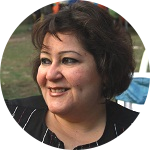Human rights groups have accused Egyptian security forces of detaining scores of children without charge and in some cases torturing and abusing them.
On 3 February, 12-year-old sweet potato seller Omar Salah was ‘accidentally’ shot in the chest by an army conscript.
A military court handed out a three-year sentence to the soldier accused of killing Salah on 7 May, but the Egyptian Coalition on Children’s Rights (ECCR) criticised the verdict for being too lenient.
Earlier this year, 14-year-old teenage cancer patient Mahmoud Adel made the news when he was arrested in the port city of Alexandria and detained for nine days, missing vital chemotherapy sessions.
Speaking to Al Jazeera, Adel – who has bone cancer – said he wasn’t even protesting when he was arrested: “I was having a drink and jumping over puddles with my friends. I had nothing to do with the protests.”
The authorities refused to release him, however, even though they were shown papers proving Adel’s illness.
The prosecutor accused Adel and another child of “using excessive force to prevent law enforcement, offending state employees and endangering the safety of the city of Alexandria.”
Adel was only released after pressure from Egyptian human rights groups.
Unprecedented numbers
Egypt’s Interior Ministry has detained 383 children since the second anniversary of the Egyptian revolution took place on 25 January, according to the ECCR.
In an interview with Ahram Online, UNICEF Representative in Egypt, Philippe Duamelle, said that the UN agency has provided legal assistance to around 600 children who were accused of involvement in demonstrations in recent months.
During protests and clashes, Egyptian security forces try to arrest as many people as they can, targeting those less likely to attack them. And that often means minors, human rights activist Ghada Shahbender explains.
“It is definitely a way of frightening people, the number of children taken by security forces and the manner in which they are detained is unprecedented in my experience,” she said.
Many of those children arrested face serious violations of their human rights.
As well as being subjected to physical violence and having their personal belongings stolen, they often face sexual assault.
Minors are usually detained alongside adults, which is a direct violation of Egypt’s children’s law, which was amended in 2008.
An investigation by Human Rights Watch recently uncovered strong evidence that police and military officers beat many of the children detained, and in some cases, subjected them to torture-like treatment.
President Morsi’s government has promised to put an end to these practices, but it is evident that nothing has changed, say activists.
Street children
Egypt’s street children often bear the brunt of government violence as they often get involved in the protests and street clashes that are now so widespread in Egypt.
They have no homes and live on the streets where they hawk goods to earn them enough money to buy food.
“It might be hard to say how many children are living on the street in Egypt, but one thing is clear: the numbers are very large and almost certainly growing,” states UNICEF.
Although it is difficult to quantify the phenomenon, NGOs estimate that there are tens of thousands street children in the country, mostly in the big cities of Cairo and Alexandria.
Given their miserable living conditions and the harassment they face from the police, it is understandable that street children participate in protests against the regime and the authorities.
Like other Egyptians, they too want a better life.
But since taking power in 2012, the Muslim Brotherhood has not improved the difficult living conditions endured by Egyptians, and until that changes, the protests will continue.
And as long as the protests continue, it is likely that children will always be victims, especially with the general deterioration of human rights in Egypt.









